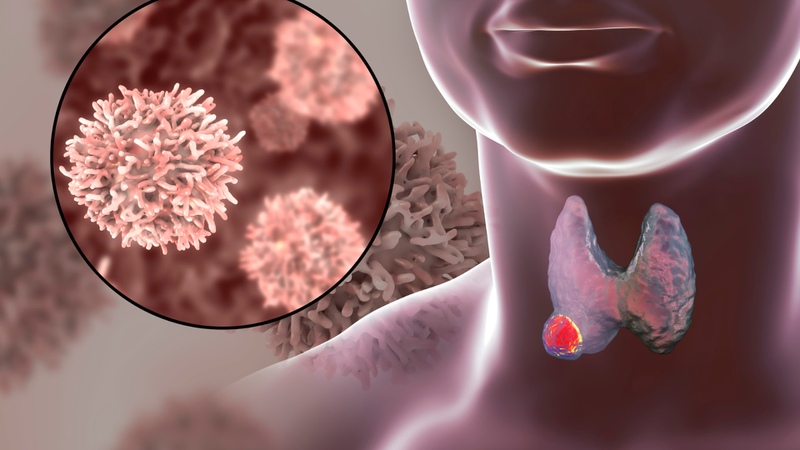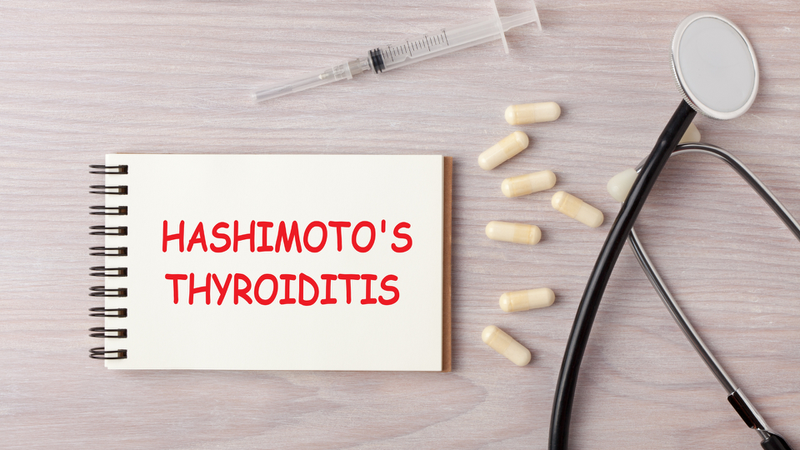The thyroid is an important organ in the endocrine system, responsible for regulating many essential functions of the body, especially metabolism. In women, thyroid problems are not only common but also have a major impact on health and quality of life, from prolonged fatigue to menstrual disorders. This article will help you better understand some common thyroid diseases in women and the symptoms to watch out for in order to detect and treat them promptly.
Why is thyroid disease more common in women than in men?
Women are more susceptible to thyroid diseases than men due to physiological and hormonal differences. Sex hormones, especially estrogen, are thought to have a major impact on thyroid function. Estrogen can stimulate immune system activity, increasing the risk of developing autoimmune diseases related to the thyroid, such as Hashimoto’s or Basedow’s disease.
Furthermore, women experience many periods of strong hormonal fluctuations such as puberty, pregnancy, childbirth, perimenopause and menopause, which make the thyroid gland more susceptible to being affected and imbalanced. The sensitivity of the immune system in women is also a contributing factor, making them more susceptible to autoimmune diseases, including thyroid disorders, than men.

Women are more susceptible to thyroid diseases than men due to physiological and hormonal differences.
Some common thyroid diseases in women
Some common thyroid diseases in women include:
Hypothyroidism
Hypothyroidism is a condition in which the thyroid gland does not produce enough thyroxine hormone (T4) to meet the body’s needs. This condition slows down many important functions, such as metabolism and energy regulation. In addition, hypothyroidism can also lead to infertility.
Common symptoms of hypothyroidism include fatigue, unexplained weight gain, feeling cold all the time, dry skin, hair loss, constipation, drowsiness, depression, irregular menstruation, etc.
The main treatment for hypothyroidism is to supplement the hormone thyroxine (levothyroxine) to replace the missing thyroid hormone. Patients need to check their hormone levels periodically to adjust the appropriate dosage of medication.

Hypothyroidism is one of the common thyroid diseases in women.
Hyperthyroidism
Hyperthyroidism is a condition in which the thyroid gland produces too much of the hormone thyroxine, which speeds up the body’s metabolic functions. People with hyperthyroidism may be at increased risk of osteoporosis.
Women with hyperthyroidism may experience symptoms such as uncontrolled weight loss, clammy, hot skin, rapid or irregular heartbeat, difficulty sleeping, anxiety, diarrhea, and hand tremors. This condition can also lead to irregular or complete cessation of menstruation.
Treatment for hyperthyroidism may include antithyroid medications to reduce hormone production, radioactive iodine to destroy part of the overactive thyroid gland, or surgery to remove the thyroid gland. Each method chosen depends on the condition of each person.
Thyroid cancer
Thyroid cancer occurs when cells in the thyroid gland grow abnormally and uncontrollably, forming malignant tumors. This is one of the most common types of cancer but has a high success rate of treatment if detected early.
Thyroid cancer may not have any early symptoms, but as it progresses, it can cause swelling or a lump in the neck, persistent hoarseness, difficulty swallowing, or swollen lymph nodes.
Treatment for thyroid cancer includes surgery to remove the thyroid gland, radioactive iodine treatment, and hormone therapy. Early detection through regular checkups is crucial to successful treatment of this disease.

Thyroid cancer occurs when cells of the thyroid gland grow abnormally and uncontrollably.
Benign goiter
A benign goiter is an enlargement of the thyroid gland, but it is not malignant. It is usually caused by iodine deficiency, abnormal growth, or genetic factors.
Women with benign goiter may experience symptoms such as a swollen neck, discomfort in the neck, difficulty swallowing, or a dry cough. However, many cases have no symptoms and are only discovered during a routine check-up.
If the goiter does not affect thyroid function or cause discomfort, your doctor may only recommend periodic monitoring. If the goiter is very large or affects function, surgery or radioactive iodine treatment may be needed to reduce its size.
Thyroid disorders of pregnancy
Thyroid disorders of pregnancy are thyroid abnormalities that occur during pregnancy, usually hypothyroidism or hyperthyroidism, due to hormonal changes during pregnancy. This can affect the health of both mother and baby.
Hypothyroidism during pregnancy can cause fatigue, excessive weight gain, constipation, and dry skin. Hyperthyroidism, on the other hand, can cause weight loss, rapid heart rate, and anxiety.
Treatment of thyroid disorders during pregnancy requires the supervision of an endocrinologist and obstetrician-gynecologist, with the goal of maintaining thyroid hormone levels within a safe range so as not to affect the health of the mother and baby. Medications are chosen based on safety for the fetus.

Gestational thyroid dysfunction is an abnormality of the thyroid gland that occurs during pregnancy.
Thyroid cysts
Thyroid cysts are small fluid-filled sacs that form within the thyroid gland. Most thyroid cysts are benign, but if they grow large, they can cause discomfort and affect thyroid function.
The symptoms of thyroid cysts are often vague, but if they are large, they can cause swelling in the neck, difficulty swallowing, or pain in the neck.
For thyroid cysts, if there are no symptoms, the patient usually just needs to be monitored. In cases where the cyst is large or causes pressure, aspiration or surgery may be indicated.
Hashimoto’s thyroiditis
Hashimoto’s thyroiditis is an autoimmune disease in which the immune system mistakenly attacks the thyroid gland, leading to a decrease in the ability to produce thyroid hormones.
Hashimoto’s disease causes symptoms similar to hypothyroidism, such as fatigue, weight gain, feeling cold, and dry skin. Sometimes the neck may swell due to inflammation of the thyroid gland, forming a goiter.
Treatment for Hashimoto’s usually involves replacing the missing hormone with thyroxine. Patients will need regular check-ups and medication adjustments to ensure that hormone levels in the body are stable.

Hashimoto’s thyroiditis is an autoimmune disease.
Effective ways to prevent thyroid disease in women
Thyroid disease in women can be effectively prevented through the following measures:
- Iodine-rich diet: Supplement iodine-rich foods such as iodized salt and seafood to help the thyroid function well, but should be moderate to avoid excess iodine.
- Maintain a healthy lifestyle: Exercise regularly, get enough sleep and reduce stress through yoga and meditation to reduce the risk of thyroid disease.
- Regular health check-ups: Regular thyroid examinations help detect abnormalities early and have timely interventions.
- Maintain hormone balance: Eat a nutritious diet, maintain a reasonable weight and limit processed foods to help maintain hormone balance and prevent thyroid disease.
- Avoid exposure to toxic substances: Limit the use of plastic products containing BPA and products with harmful chemicals to protect thyroid function.
- Boost your immune system: Supplement vitamins and minerals such as vitamin C, D and zinc to support your immune system, helping to reduce the risk of autoimmune thyroid diseases.
- Limit tobacco and alcohol: Avoid tobacco and alcohol abuse because these chemicals negatively affect the thyroid and overall health.
- Control your weight: Maintaining a reasonable weight helps the thyroid function effectively and reduces the risk of disease.
- Supplement selenium and zinc: These two important micronutrients help the thyroid function stably, found in nuts, red meat and seafood.

Supplement iodine-rich foods such as iodized salt and seafood to help the thyroid function better.
Thyroid disease in women often causes many complex symptoms and can significantly affect overall health. Early detection of abnormal signs and regular health check-ups are key to helping women control the disease and improve their quality of life. Hopefully, this article will help you grasp important information about common thyroid diseases in women for effective prevention and treatment.





